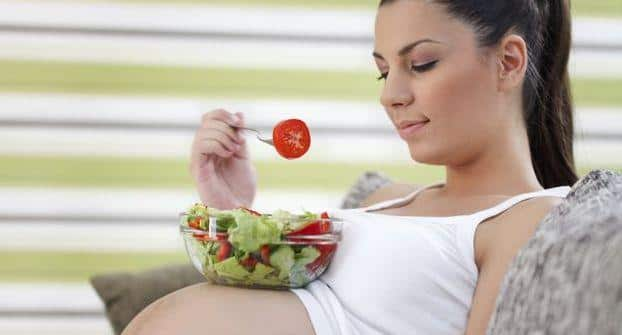
A new study has shown that healthy eating and increased physical exercise, like walking while being pregnant is directly connected with a collection of improved outcomes at birth. Until these studies was conducted, there were little evidence regarding the overall primary advantages of dietary and lifestyle interventions on women. Researchers from your University of Adelaide said that the effects is world’s biggest study of this type and offered healthy eating and workout advice to pregnant women who’re overweight or obese.
The results suggested that ladies who received dietary and lifestyle advice increased the quantity of servings they consumed on a daily basis of fruit and veggies, while lowering the percentage of energy with their diet resulting from saturated fats. The scientists also added that women were also successful in increasing their training, with approximately 15-20 minutes of brisk walking of all times a few days. (Read: 5 ways to start exercising when pregnant)
Study leaders had previously reported that there would have been a significant reduction in the amount of babies born over 4kg to ladies that received the diet and lifestyle advice while. The study were now competent to report many different other benefits for such babies, such as a reduced chance for moderate to severe respiratory distress syndrome and reduced period of a hospital stay. Nearly 50 percent of females were obese or overweight when pregnant. (Read: 10 diet dos and don’ts in pregnancy by expert dietician Naini Setalvad)
The study was published in just two papers while in the journal BMC Medicine.
Here is usually a report on essentials you need to eat the best way or another.
Calcium: You could have learnt from your school text books that calcium works well for bone and teeth development. More answer why you want it while pregnant. Your baby’s calcium requirements should be met for overall skeletal development. So have that glass rich in milk and gorge on dairy foods like cheese, yoghurt, paneer. ‘If you might be lactose-intolerant or develop intolerance while pregnant even now opt for reason you should miss on natural causes of calcium and depend upon pills. Use non-dairy products rich with calcium to help make up for the deficiency,’ says Deepshikha Agarwal, a Mumbai based dietitian and sports nutritionist expert. Other good sources include lotus stems, almonds, broccoli and til or sesame seeds.
Folic acid: Vitamin b folic acid is critical for foetal brain and spine development. ‘Often women are prescribed pills as doctors believe one may not include enough of it while in the diet and hamper foetal well-being,’ informs Deepshika. Even though you shouldn’t will lose out on your pills, you possibly can supplement them by using tofu or soya paneer, dark green veggies like spinach and fenugreek, bottle gourd, musk melon, peanuts and peanut butter. ‘Many women are allergic or might develop peanut allergy while pregnant. When you notice any allergy or intolerance resulting from it, drop it through the food list. Other meals would still provide you with enough folic acid b vitamin if taken adequately,’ says Deepshika.
Iron: It can help to in the haemoglobin levels in you so enabling during the organ and cell growth and development of your child. ‘Remember you’ll want to keep the iron levels up as once you are accountable for infant health insurance and development too,’ says Deepshikha. Have many green veggies like spinach, fenugreek, broccoli, dates, raisins, figs, beetroots and apples. ‘Never have iron and calcium-rich foods together as calcium many interface with absorption of iron,’ cautions Deepshika. As an example avoid broccoli salad with curd or milk using a spinach toast. Read more about 7 essentials every pregnant woman’s diet should have
With inputs from ANI

